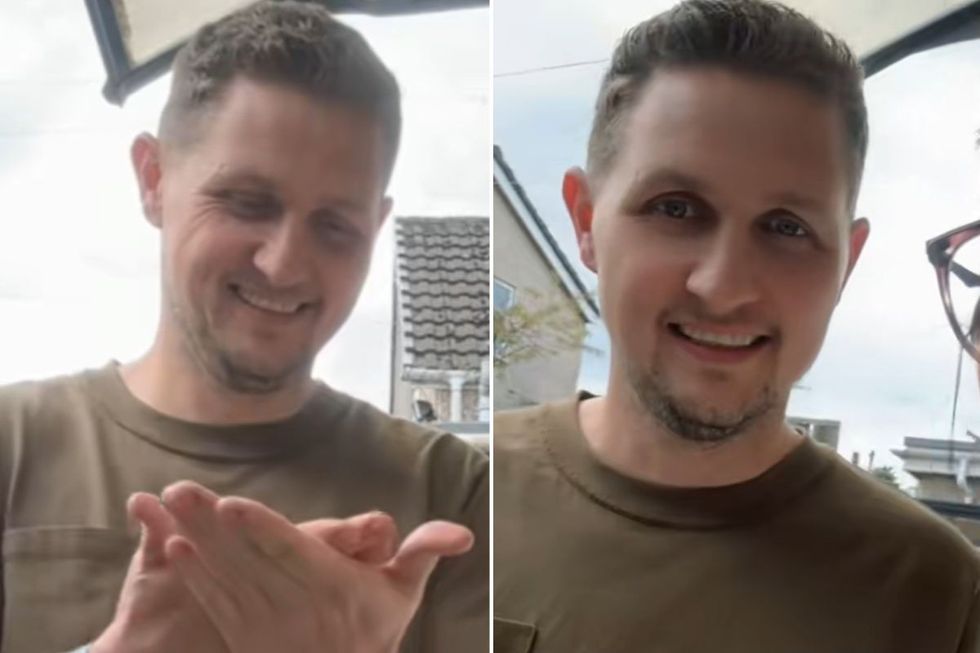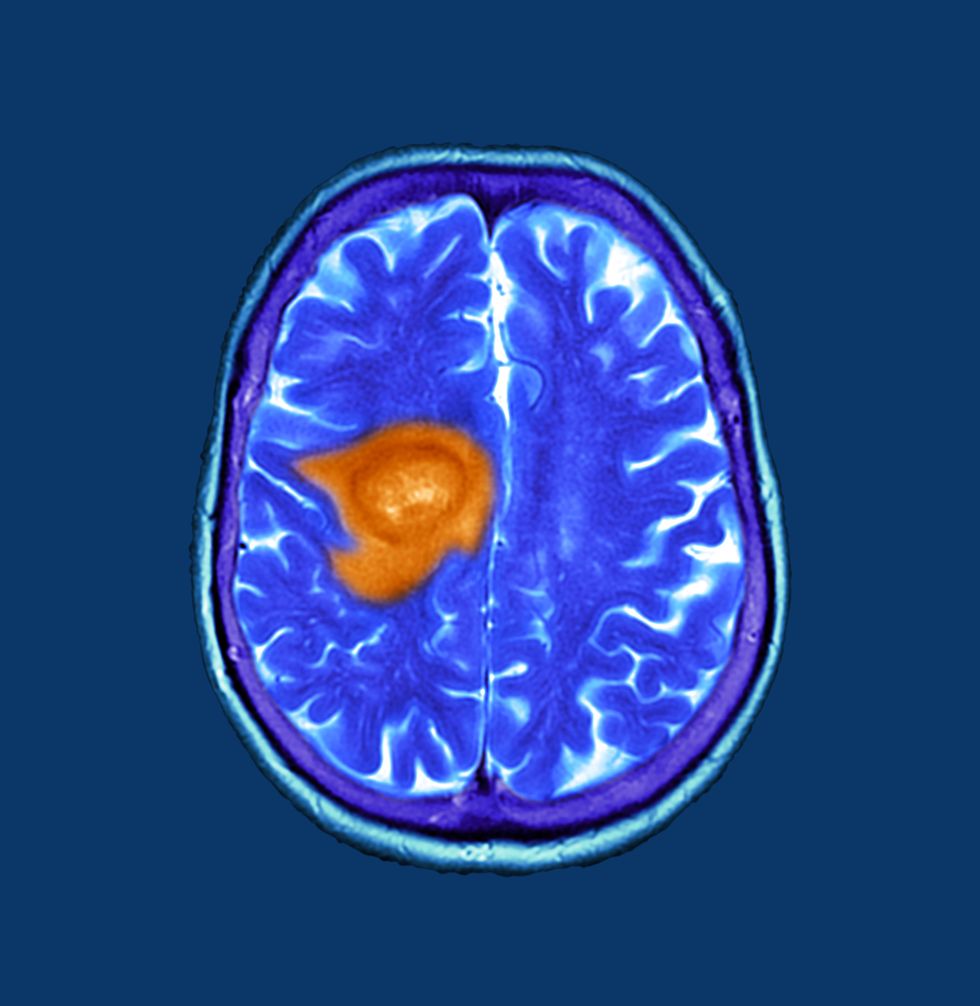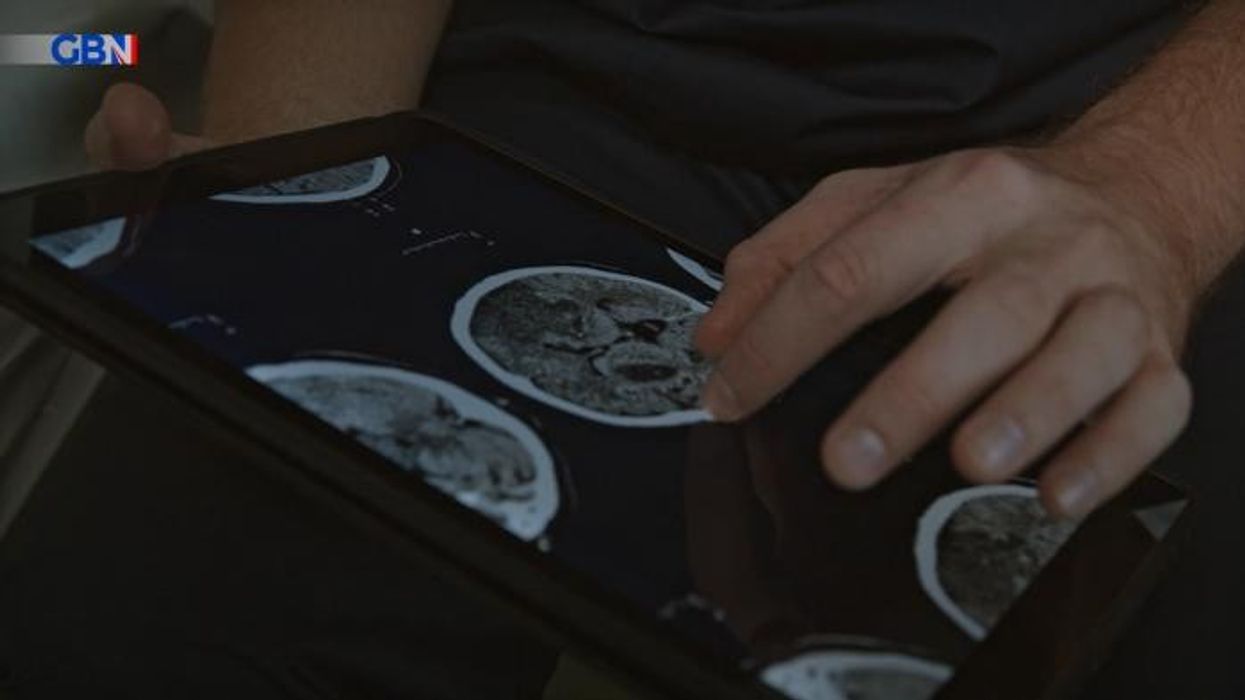'Get checked': Cancer patient warns that simple clapping test may signal brain tumour in dire caution

The test calls on several areas of the brain to work together, a doctor explained
Don't Miss
Most Read
A brain tumour patient called Lee has used TikTok to show how struggling with a simple clapping test might signal the presence of a brain tumour.
Lee, who has a tumour growing from the membranes that surround the brain and spinal cord, demonstrated the coordination difficulty in his video.
"You might want to get checked. We saw a video about the hand clap from a doctor. It's not the only way to find out if you have a brain tumour; you might just have really bad coordination. But if you can't move your hands like that, then it is best to get checked," Lee's girlfriend Char explained in the post.
Dr Michael Genovese, physician and chief medical adviser at Ascendant New York, explained the complex neurological processes behind this seemingly simple action to GB News.

Lee suffers from meningioma
|GETTY
"Clapping seems like a simple movement, but your brain requires several areas to work together smoothly to execute it," he said.
"The motor cortex, which sits in the frontal lobe, tells your muscles when and how to move. Then there is the cerebellum, which is kind of like your body's internal coach - it keeps everything coordinated and balanced.
"Moreover, the premotor and supplementary motor areas help plan and sequence the motion."
When tumours press against these crucial brain regions, the normal communication pathways between brain and body become compromised.
"If a tumour presses on any of these regions, communication between your brain and body can become disrupted," Dr Genovese explained.
"Someone might have full strength in their arms and hands but still struggle to bring their hands together in a fluid motion. It is not about effort - it is about the brain losing its usual 'rhythm' for how that movement happens."
These coordination difficulties typically emerge as the disease advances.
"We see this issue further along. Early symptoms of brain tumours are often more subtle or vague - maybe someone has headaches that feel off, slight personality changes, or they seem clumsier than usual," Dr Genovese noted.
LATEST DEVELOPMENTS

Meningioma is a tumour that grows from the membranes
|GETTY
Medical professionals can differentiate brain tumour symptoms from other neurological conditions by examining how symptoms develop over time.
"The timing of symptoms is a big part of the picture. Strokes usually occur quickly and severely - we are talking about minutes to hours. A tumour tends to build slowly, sometimes over weeks or even months," Dr Genovese explained.
Neurodegenerative conditions present their distinct patterns.
"Parkinson's often starts with a tremor or stiffness on one side. ALS typically begins with weakness or twitching in specific muscles," he added.
Whilst the clapping test provides useful information, proper diagnosis requires a comprehensive assessment, including brain imaging.











